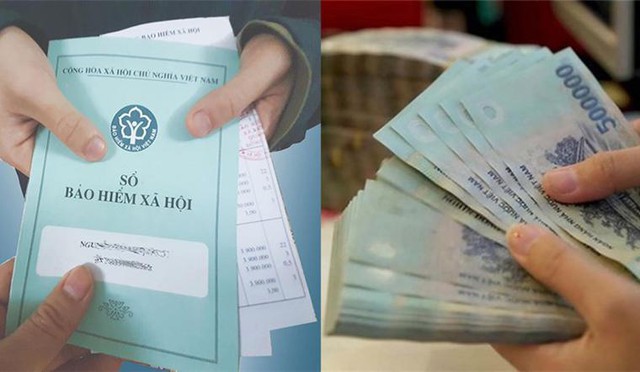
Retirement procedures and social security benefits in Vietnam
According to Clause 2, Article 169 of the 2019 Labor Code and Clause 4, Article 135/2020/NĐ-CP, the retirement age for employees in normal working conditions will gradually increase until it reaches 62 years for men by 2028 and 60 years for women by 2035.
Specifically, from January 1, 2021, the retirement age for employees in normal working conditions is 60 years and 3 months for men and 55 years and 4 months for women. Thereafter, the age will increase by 3 months each year for men until it reaches 62 years in 2028, and by 4 months each year for women until it reaches 60 years in 2035.
Thus, the retirement age in 2025 for employees in normal working conditions will be: 61 years and 3 months for men and 56 years and 8 months for women.
According to Articles 169 and 219 of the 2019 Labor Code and the guidance in Decree 135/2020/NĐ-CP, employees working in normal conditions who were born in the following months will be considered for retirement in 2025:
– For male employees: Born between December 1963 and August 1964
– For female employees: Born between August 1968 and March 1969
Conditions for receiving a pension until June 30, 2025
Specifically, from January 1, 2025, to June 30, 2025, the provisions on the conditions for receiving a pension will be applied in accordance with the 2014 Social Insurance Law.
Accordingly, employees who meet the following conditions will be eligible for a pension:
(1) Employees specified in points a, b, c, d, g, h, and i of Clause 1, Article 2 of the 2014 Social Insurance Law, except for the case specified in Clause 3 of this Article, who have at least 20 years of social insurance contributions when they cease employment, shall be entitled to a pension if they meet one of the following conditions:
– They have reached the age specified in Clause 2, Article 169 of the 2019 Labor Code;
– They have reached the age specified in Clause 3, Article 169 of the 2019 Labor Code and have at least 15 years of engagement in heavy, toxic, dangerous, or especially heavy, toxic, and dangerous occupations listed by the Ministry of Labor, Invalids, and Social Affairs, or have at least 15 years of work in areas with particularly difficult socio-economic conditions, including the time working in places with a regional allowance coefficient of 0.7 or higher before January 1, 2021;
– Employees whose age is lower than the retirement age specified in Clause 2, Article 169 of the 2019 Labor Code by a maximum of 10 years and who have at least 15 years of engagement in coal mining in underground mines;
– Those infected with HIV due to occupational accidents or risks while performing assigned tasks.
(2) Employees specified in points d and e of Clause 1, Article 2 of the 2014 Social Insurance Law who have at least 20 years of social insurance contributions when they cease employment shall be entitled to a pension if they meet one of the following conditions:
– Their age is lower than the retirement age specified in Clause 2, Article 169 of the 2019 Labor Code by a maximum of 05 years, unless otherwise specified in the Law on Military Officers of the People’s Army of Vietnam, the Law on Public Security, the Law on Cryptography, or the Law on Professional Soldiers, Military and Civilian Officers of the Vietnam People’s Army;
– Their age is lower than the retirement age specified in Clause 3, Article 169 of the 2019 Labor Code by a maximum of 05 years, and they have at least 15 years of engagement in heavy, toxic, dangerous, or especially heavy, toxic, and dangerous occupations listed by the Ministry of Labor, Invalids, and Social Affairs, or have at least 15 years of work in areas with particularly difficult socio-economic conditions, including the time working in places with a regional allowance coefficient of 0.7 or higher before January 1, 2021;
– Those infected with HIV due to occupational accidents or risks while performing assigned tasks.
(3) Female employees who are officials or non-professional staff at the commune level and who have participated in social insurance when they cease employment with at least 15 years but less than 20 years of social insurance contributions and have reached the retirement age specified in Clause 2, Article 169 of the 2019 Labor Code shall be entitled to a pension.
(4) Conditions for retirement age in some special cases as prescribed by the Government.
(Article 54 of the 2014 Social Insurance Law, amended by Point a, Clause 1, Article 219 of the 2019 Labor Code)
















